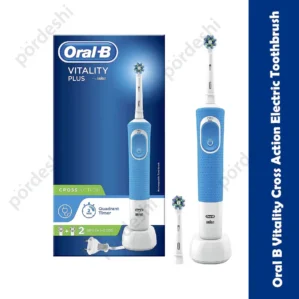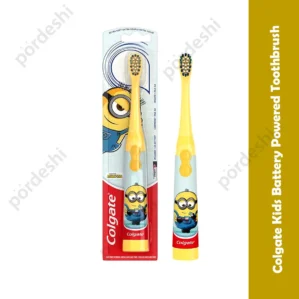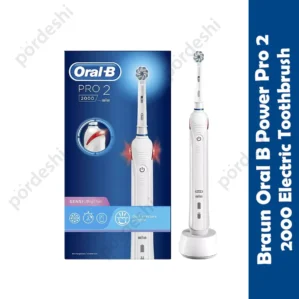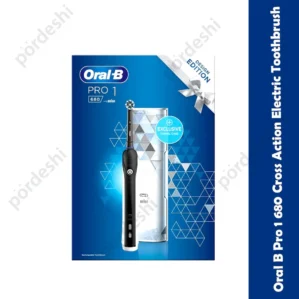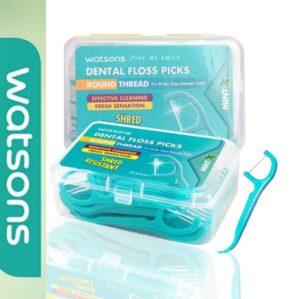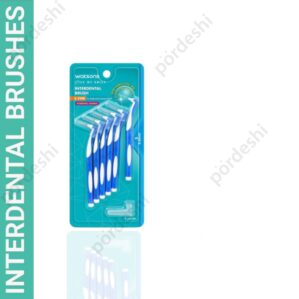Toothbrush
Showing all 6 resultsSorted by latest
Braun Oral B Power Pro 2 2000 Electric Toothbrush
Original price was: 8,000.00৳.7,789.00৳Current price is: 7,789.00৳.Watsons Round Thread Dental Floss Picks 50 Pcs
Original price was: 300.00৳.199.00৳Current price is: 199.00৳.INTERDENTAL BRUSH L Type For Cleaning Teeth
Original price was: 600.00৳.519.00৳Current price is: 519.00৳.The Complete Guide to Choosing the Best Toothbrush for Optimal Dental Hygiene
It plays a crucial role in maintaining oral health. From removing plaque and preventing gum disease to ensuring fresh breath and bright smiles, the right toothbrush can make all the difference. In this comprehensive guide, we explore everything you need to know about toothbrushes, helping you make an informed decision for your dental hygiene routine.
The Significance of Toothbrushes
It is essential tools for maintaining oral health for several reasons:
- Plaque Removal: Toothbrushes effectively remove food particles and plaque buildup, preventing tooth decay and gum disease.
- Fresh Breath: Brushing your teeth with the right toothbrush helps eliminate bad breath by removing odor-causing bacteria.
- Preventing Stains: Regular brushing can help prevent stains from coffee, tea, and tobacco, keeping your teeth white.
- Overall Health: Good oral hygiene is linked to better overall health, reducing the risk of systemic diseases.
The natural toothbrushes:
Eco-Friendly brushes as Miswak, Charcol, BemboBrush
Types and Features of Toothbrushes
It comes in various types, catering to different needs and preferences:
Manual Toothbrushes
These traditional toothbrushes feature bristles and a handle. Factors to consider include:
- Bristle Material: Most commercially available toothbrushes use synthetic (nylon) bristles.
- Head Size: Smaller heads are better for children and people with smaller mouths.
- Bristle Texture: Available in soft, medium, and hard, with soft bristles often recommended to prevent gum damage.
Electric Toothbrushes
Powered toothbrushes oscillate or vibrate to provide a more thorough clean with less effort. Key features include:
- Timer: Ensures you brush for the recommended two minutes.
- Pressure Sensor: Alerts you if you’re brushing too hard.
- Different Modes: Tailored for sensitive teeth, whitening, and gum care.
Specialty Toothbrushes
Designed for specific needs, such as:
- Orthodontic Brushes: For braces.
- Gum Stimulators: To promote gum health.
- Interdental Brushes: For cleaning between teeth.
Benefits of Using the Right Toothbrush
Choosing the right toothbrush can significantly impact your oral care:
- Improved Cleanliness: Effective plaque removal and prevention of gum disease.
- Enhanced Comfort: Soft bristles reduce the risk of gum irritation and damage.
- Better Compliance: Features like timers and pressure sensors encourage proper brushing habits.
- Cost-Effective Maintenance: Replaceable brush heads for electric toothbrushes ensure affordability over time.
Risks and Side Effects
While It is safe, improper use can lead to:
- Gum Recession: Brushing too hard can wear down gum tissue.
- Enamel Erosion: Hard bristles and aggressive brushing can erode tooth enamel.
- Infections: Infrequent replacement of toothbrushes can harbor bacteria.
Safety Advice
- Replace Regularly: Change your toothbrush every 3-4 months or sooner if bristles are frayed.
- Brush Gently: Use soft bristles and avoid applying too much pressure.
- Store Properly: Keep your toothbrush dry and upright to prevent bacterial growth.
How to Choose the Right Toothbrush
Selecting the ideal toothbrush depends on your specific needs and preferences:
- Bristle Type: Soft bristles are recommended for most people.
- Manual or Electric: Decide whether you prefer the control of a manual toothbrush or the convenience of an electric one.
- Additional Features: Look for features like pressure sensors, timers, and different cleaning modes.
- Replaceable Heads: Check if an electric toothbrush has replaceable brush heads for cost-effective maintenance.
How We Chose
We considered several factors in selecting top toothbrush recommendations:
- Effectiveness: Ability to remove plaque and prevent gum disease.
- Comfort: Soft bristles and ergonomic design.
- Features: Timers, pressure sensors, and multiple modes for electric toothbrushes.
- User Reviews: Feedback from dental hygiene enthusiasts and professionals.
Ingredients: What to Pay Attention to
When it comes to toothbrushes, the “ingredients” refer to the materials used:
- Bristle Material: Nylon is standard, but some prefer natural bristles.
- Handle Design: Ergonomic handles help maintain a comfortable grip.
- Brush Head Shape: Different shapes cater to various mouth sizes and preferences.
What Is the Difference Between Manual and Electric Toothbrushes?
- Manual: Requires more effort and technique but offers more control.
- Electric: Easier to use, with features that ensure proper brushing time and pressure.
Tips for Effective Brushing
- Brush Twice Daily: Aim for at least two minutes each time.
- Use Fluoride Toothpaste: Helps protect against cavities.
- Replace Your Toothbrush Regularly: Every 3-4 months or when bristles are worn.
- Don’t Forget Your Tongue: Use a tongue scraper or your toothbrush to clean your tongue.
Top brand as Oral-B, Colgate, Anchor, Anchor, Sensodyne,
Pordeshi Picks for the Best Toothbrushes in Bangladesh
Electric Toothbrush Oral B Pro 1
Braun Oral B Power Pro 2 2000 Electric Toothbrush
Colgate Kids Battery Powered Toothbrush
Conclusion
It is an essential part of maintaining good oral hygiene. By choosing the right type and using it correctly, you can significantly improve your dental health and overall well-being. Whether you prefer a manual or electric model, make sure to replace it regularly and use proper techniques to get the most out of your brushing routine.
20 Frequently Asked Questions
How often should I replace my toothbrush?
Every 3-4 months, or sooner if the bristles are frayed.
Are electric toothbrushes better than manual ones?
Both can be effective; the choice depends on personal preference and specific oral health needs.
What type of bristles should I choose?
Soft bristles are generally recommended for most people.
Can kids use electric toothbrushes?
Yes, many electric toothbrushes are designed specifically for children.
How long should I brush my teeth?
At least two minutes, twice a day.
Is it safe to share a toothbrush?
No, sharing a toothbrush can transfer bacteria and increase the risk of infection.
What is the best way to store my toothbrush?
Upright in a dry, open space to prevent bacterial growth.
Do I need a toothbrush with a tongue cleaner?
It’s optional, but cleaning your tongue can help reduce bad breath.
How do I know if I’m brushing too hard?
Use a toothbrush with a pressure sensor or look for signs of gum recession.
Can I use a manual toothbrush if I have braces?
Yes, but you may also need an orthodontic brush for thorough cleaning.



 Hair Care
Hair Care
 Vibrating Rings
Vibrating Rings

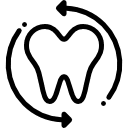 Oral Care
Oral Care
